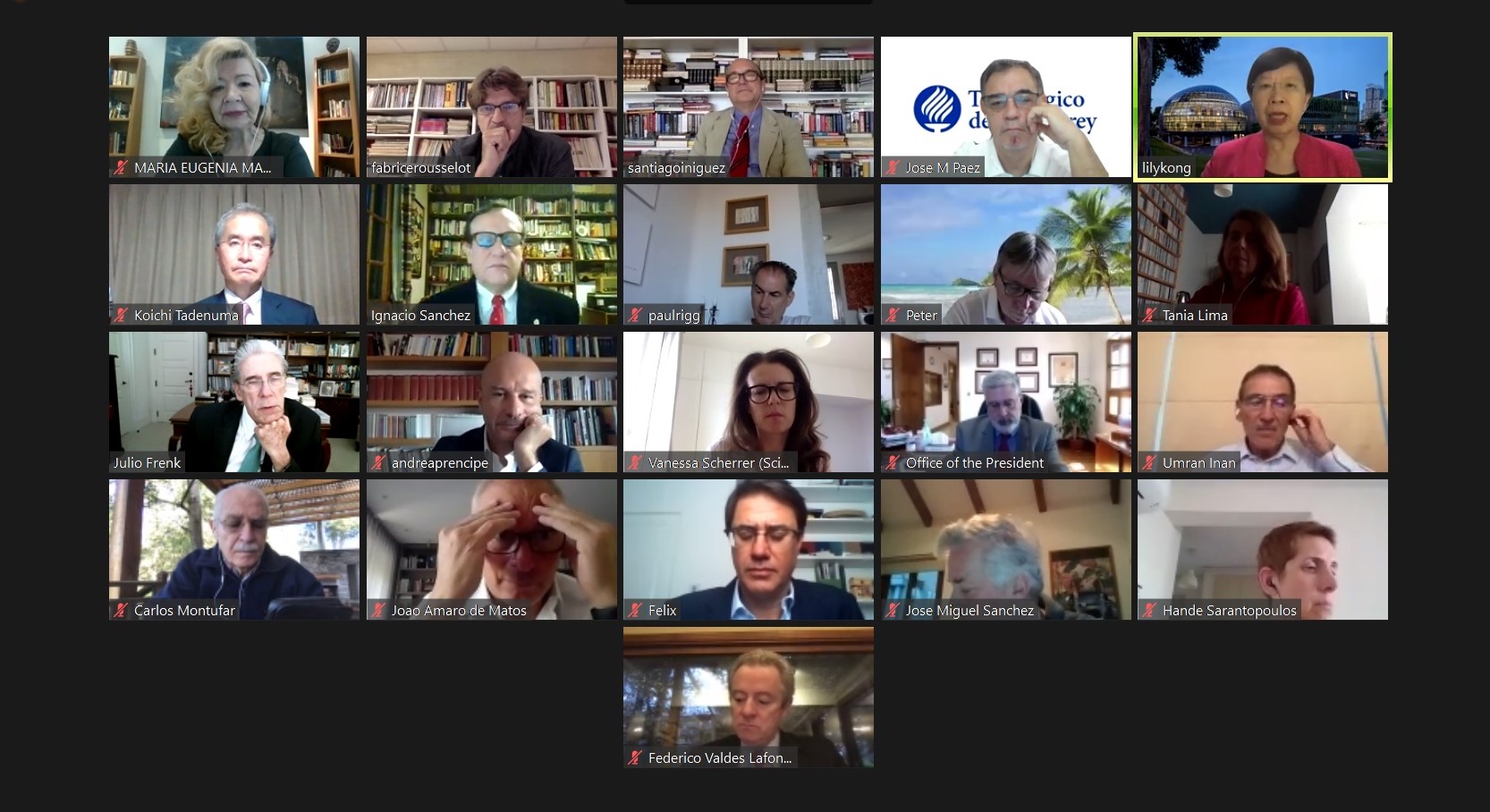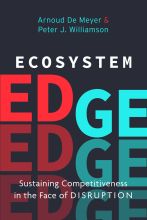Upholding mobility and diversity as core values in higher education

It is crucial to “continue to enable the cross-border flows of students, and the cross-cultural interactions that can only make the world a better place”, said Professor Lily Kong, President of SMU and one of the signatories of the statement. “It is only with greater understanding, cross-culturally, that the world has any hope of a better, friendlier existence in the years ahead.”
She was speaking at a virtual conference on June 29 held to mark the release of the joint statement, which was initiated by Spain’s IE University, one of SMU’s close partners in Europe, in response to the impact of Covid-19 on higher education. Signatories to the joint statement include Harvard University, Hitotsubashi University, King’s College London, Koç University, London School of Economics and Political Science, Renmin University of China, Sciences Po, Tecnológico de Monterrey, the University of British Columbia and Yale University
A university is “an assemblage of strangers of all parts in just one spot…consisting of teachers and learners from every quarter” — this description by academic Cardinal John Henry Newman captures the very essence of a university, said Santiago Iñiguez, President of IE University as he opened the conference.
For some time now, rising populism and anti-immigration sentiment has led to restrictions on mobility in some countries and regions, thereby impacting where faculty and students can teach and learn.
More recently, the COVID-19 pandemic precipitated dramatic restrictions in global travel. This has affected the ability of students and faculty to remain in or travel to their universities, take part in study abroad programmes, and may lead to significant drops in foreign student enrolment and the recruitment of international faculty.
In light of these challenges, the joint statement, titled “Mobility in higher education as a catalyst for resilience and renewal”, kicks off an action plan in which universities commit to continue cross-border collaboration and knowledge sharing, and to uphold the core values of diversity and inclusion.
Prof Kong said that SMU viewed global exposure such as participation in overseas community service projects, internships or exchange programmes as fundamental to the education of its students — so much so that it has been a graduation requirement since 2018.
In the same vein, Julio Frenk, the President of the University of Miami in the United States said that “the intrinsic nature of knowledge requires connectivity” and that the formative years of higher education were critical ones for this exposure to diverse viewpoints. “If you can offer an 18-year-old the experience of meeting people who think and look differently, a sense of global citizenship can be created, [and this] is critical for the survival of the planet,” he believed.
LEVERAGING TECHNOLOGY
COVID-19’s severe travel restrictions have also spurred a swifter and more widespread embrace of technology in higher education, a silver lining of sorts. For instance, universities across Europe have been able to collaborate digitally during this time, said Peter Mathieson, the President of the University of Edinburgh in Scotland.
Indeed, one of the joint statement’s goals is to use technology to enable interconnectedness and explore more environmentally sustainable and equitable ways to connect across borders.
In using technology as a tool, it is important to keep in mind how it can enhance the valuable qualities of higher education. In 2018, SMU’s Blue Ribbon Commission for Undergraduate Education had deliberated on the question of how to use technology in a world where online courses were readily available. The Commission comprised SMU faculty members and administrative personnel, and was tasked with reviewing the University’s undergraduate education to enhance the academic experience and holistic development of SMU undergraduate students.
The Commission concluded that technology should be used not just as a platform for delivering information, but for enhancing interaction. “Students learn through interaction with their peers, through the cut and thrust of debate,” said Prof Kong. This approach will continue to underpin the university’s use of technology as SMU begins a new academic year in August with most of its courses taught fully online.
WORKING TOGETHER
Fadlo R. Khuri, the President of the American University of Beirut in Lebanon, also shared that universities should play a leadership role in using technology to create new opportunities for learning during this current crisis. There is a lot of despair around the world due to the COVID-19 pandemic, he noted, and the joint statement reaffirmed the importance of a group of diverse institutions working together to use technology to overcome that fear.
Indeed, another silver lining to the current situation has been the increase in collaboration worldwide. “I have never seen this intensity of collaboration among scientists, and also from the government, universities and industry, from all over the world,” said Dr Frenk.
As the science community races to develop better tests, drugs, vaccines, the joint statement commits to collaboration between universities to identify protocols that guarantee safe university campuses and facilitate international mobility. In this, and myriad other ways of working together to foster cross-border exchanges, lies the key to ensuring a resilient ecosystem of higher education that will be able to survive these turbulent times.
In his closing remarks, President Iñiguez said, “This is just the beginning of the journey. The advantage is that we share a vision and passion for education, and for transforming the world. The future is ours so long as we work hard together to promote international mobility of students, faculty, and talent and build a more inclusive world, one that is diverse and tolerant and more respectful of sustainability.”



